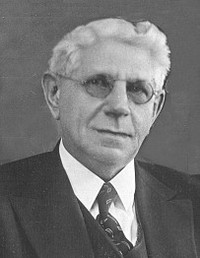 by Louis Berkhof
by Louis Berkhof
God is self-existent, that is, He has the ground of His existence in Himself. This idea is sometimes expressed by saying that He is causa sui (His own cause), but this expression is hardly accurate, since God is the uncaused, who exists by the necessity of His own Being, and therefore necessarily. Man, on the other hand, does not exist necessarily, and has the cause of his existence outside of himself. The idea of God’s self-existence was generally expressed by the term aseitas, meaning self-originated, but Reformed theologians quite generally substituted for it the word independentia (independence), as expressing, not merely that God is independent in His Being, but also that He is independent in everything else: in His virtues, decrees, works, and so on. It may be said that there is a faint trace of this perfection in the creature, but this can only mean that the creature, though absolutely dependent, yet has its own distinct existence. But, of course, this falls far short of being self-existent. This attribute of God is generally recognized, and is implied in heathen religions and in the Absolute of philosophy. When the Absolute is conceived of as the self-existent and as the ultimate ground of all things, which voluntarily enters into various relations with other beings, it can be identified with the God of theology. As the self-existent God, He is not only independent in Himself, but also causes everything to depend on Him. This self-existence of God finds expression in the name Jehovah. It is only as the self-existent and independent One that God can give the assurance that He will remain eternally the same in relation to His people. Additional indications of it are found in the assertion in John 5:26, “For as the Father hath life in Himself, even so gave He to the Son also to have life in Himself”; in the declaration that He is independent of all things and that all things exist only through Him, Ps. 94:8 ff.; Isa. 40:18 ff.; Acts 7:25; and in statements implying that He is independent in His thought, Rom. 11:33,34, and in His will, Dan. 4:35; Rom. 9:19; Eph. 1:5; Rev. 4:11. in His power, Ps. 115:3, and in His counsel, Ps. 33:11.
-----
Excerpt from Systematic Theology by Louis Berkhof
